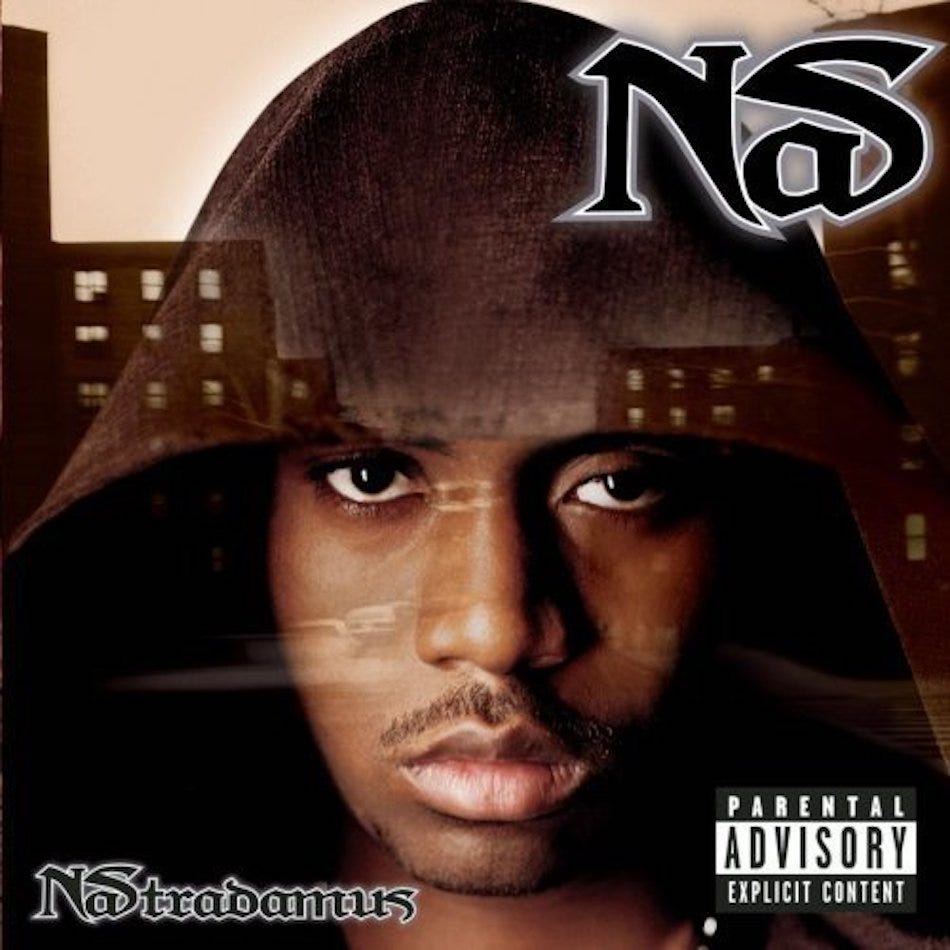Don't Wait 'til I'm Dead To Say That I Was The Best
What do Nas, Thomas Sowell, and today's jobs report all have in common? Nothing. But let's tie it all together anyway!
Don’t wait ‘til I’m dead to say that I was the best
Nas
I love that quote. It’s actually an incredible quote for a variety of reasons. I don’t expect most of my subs to know who Nas is. He is a rap artist from Queensbridge, New York. Now in his late 40’s, he’s had a bit of a relevance renaissance after winning his first Grammy award in 2021; thirty years into his career. Frankly, I’ve never cared about Grammy awards as a fan and I think the fact that Cardi B won a Grammy for Best Rap Album before Nas did tells you everything you need to know about about the value of such trophies. But that’s a topic for another day. Regardless, seeing Nas finally win one after 13 nominations and no hardware was cool.
What makes that line in the headline so incredible to me is that it came on a sub-par Nas track on what is widely understood to be Nas’ worst album. That album, Nastradamus, was released in 1999 and was actually his second album of the year. Which is another story entirely. But at that time, some people questioned whether Nas was even the best rapper from New York let alone the best ever. The reason why this line came to me today is because I was thinking about Thomas Sowell.
At 92 years old, Sowell is still alive. He’s one of the last great Austrian economic thinkers from the Milton Friedman era yet is never considered a voice worth listening to in a world run by Keynesians. Paul Krugman, an utter buffoon and the ‘Cardi B of Economics,’ has a Nobel prize in economic sciences yet Thomas Sowell does not. It’s a tragedy, and another example of the legitimacy of certain established awards and recognitions being very much up for debate.
Don’t wait ‘til Thomas Sowell is dead to say he was the best
I was thinking about Sowell today because of his humorous takes on government statistics:
A always exceeds B if you leave out enough of A and exaggerate B.
Thomas Sowell
I thought about that quote after today’s jobs number. A number so wildly ahead of expectations and contrary to what is generally being seen on the ground that it naturally raises questions about how legitimate the data can even be. The US economy apparently added 528k jobs in July; expectations were for less than half of that (250k expected). Furthermore, how is it that the jobs figure can be an absolute blowout when July marked the third decline in four months in labor force participation?
And we had another 260 thousand in initial jobless claims from the final week of July:
To recap: more jobless claims, fewer people working both as a percentage of total population and in aggregate figures, yet an absolute blowout over expectations for July jobs?
How exactly?
The answer, of course, lies in how these jobs are counted and the variance between methodologies of surveys. This is how Mike Shedlock explained it today.
In the household survey, if you work three part-time jobs, 12 hours each, the BLS considers you a full-time employee. In the payroll survey, three part-time jobs count as three jobs. The BLS attempts to factor this in, but they do not weed out duplicate Social Security numbers. The potential for double-counting jobs in the payroll survey is large.
This is how you can get jobs numbers that seem counterintuitive. Shedlock added that the unemployment rate doesn’t include people who have given up looking for work or who have run out of benefits entirely so it’s a figure that lacks context. Optically, it could be argued we have a strong labor market because jobs appear to be growing and we have low unemployment. But in reality we have fewer people working than we did in March and part time jobs are likely skewing the overall number. Little details, I suppose.
Thomas Sowell seems to understand these data methodology problems well which is the only conceivable reason I can think of why he doesn’t get as much mainstream play as Captain Child Porn.
And so ends our economic talk for today. But that doesn’t mean we must say goodbye just yet… Remember, if you’re enjoying this blog please consider liking and sharing it with your friends. I’ll be much obliged. Of course, you are always welcome to contribute to these musings monetarily as well.
Many of you already are and I can’t thank those of you enough! Paying for independent work keeps me motivated to write and you get paywalled insights and ideas in return. Also, if you’re a crypto head and don’t want to subscribe as a paid member you can shoot some BTC, ZEC, DASH, LTC, DOGE, BCH, or XMR over to faybomb.crypto in most standard self-custodial wallets (Edge, Atomic, Trust Wallet, and Brave). It’s the digital tip jar, as they say.
The Nastradamus Story
Because I’m sure you’re wondering about the Nastradamus story (*Narrator: they were not wondering*), I think it’s a really interesting tale that illustrates the difficulty the music industry had with the Napster era. Back in the late 1990’s music bootlegging online started to become a serious problem. Napster wasn’t even released yet but peer to peer file sharing through the mp3 format via message boards had already started.
Nas was coming off what many felt was a collaborative super group flop in 1997 with Dr. Dre, Foxy Brown, and AZ called The Firm. The plan for 1999 was a double album titled I Am… The Autobiography that was to be a concept LP following Nas’ protagonist character from birth through death. Naturally, a large chunk of the project was leaked and it forced a change of plans from his label at the time (Columbia).
Scrapping the double album concept altogether, Nas and Columbia instead released I am… as a single disc album in April 1999. That project was a mix of some of the leaked tracks and a handful of new recordings. No doubt in an attempt to capitalize on the work from the scrapped project, Columbia also decided to release the rest of the cuts from the leaked project as Nastradamus in Q4 1999. Again, plans changed and Nas decided at the last minute to instead record an album of mostly new material with a handful of the scrapped double LP tracks.
Nastradamus was born and it was unlike any of Nas’ other projects. The project was hastily put together and it showed. It showcased mostly lazy lyrics over what I’d delicately call “throwaway beats” from producers with very different styles sonically. It was… not great.
Luckily for Nas fans, it didn’t take Columbia long to try (again) to make money off the scrapped double LP tracks that had leaked in 1999. In 2002 Nas released a compilation album called The Lost Tapes and it included several tracks that were included in the original I Am… The Autobiography leak:
Fetus
Drunk by Myself
Poppa Was a Playa
Blaze a 50
The Lost Tapes was such a critical success that the speculation about what I Am… The Autobiography could have been intensified. The bigger the Nas fan you are, and I’m a big one, the worse this speculation has become because we manage to find other recordings and can piece together what we think Nas intended from his double LP story.
There are tracks from the I Am… The Autobiography sessions that were never actually release by Nas or Columbia on any of I Am…, Nastradamus, or The Lost Tapes. For instance, this one was probably intended to be the first track on the second disc of the original double album but it clearly hasn’t been mastered:
One of the reasons for sharing this story is because it’s interesting to me personally. When that line in the title of this post popped in my head, it brought back memories and thoughts about what could have been if I Am… The Autobiography ever was released as initially intended. We’ll never know. What I do know is it didn’t take a Grammy for me to think Nas is the best.








I only know Nas as Kelis’s ex husband
Was just reading about the jobs on ZH https://www.zerohedge.com/markets/something-snaps-job-market-multiple-jobholders-hit-all-time-high-unexplained-18-million
In the Simpsons Homer never went to college (except maybe clown college?) and can support a stay at home mom and 3 kids
"A always exceeds B if you leave out enough of A and exaggerate B."
That's too obscure for me.